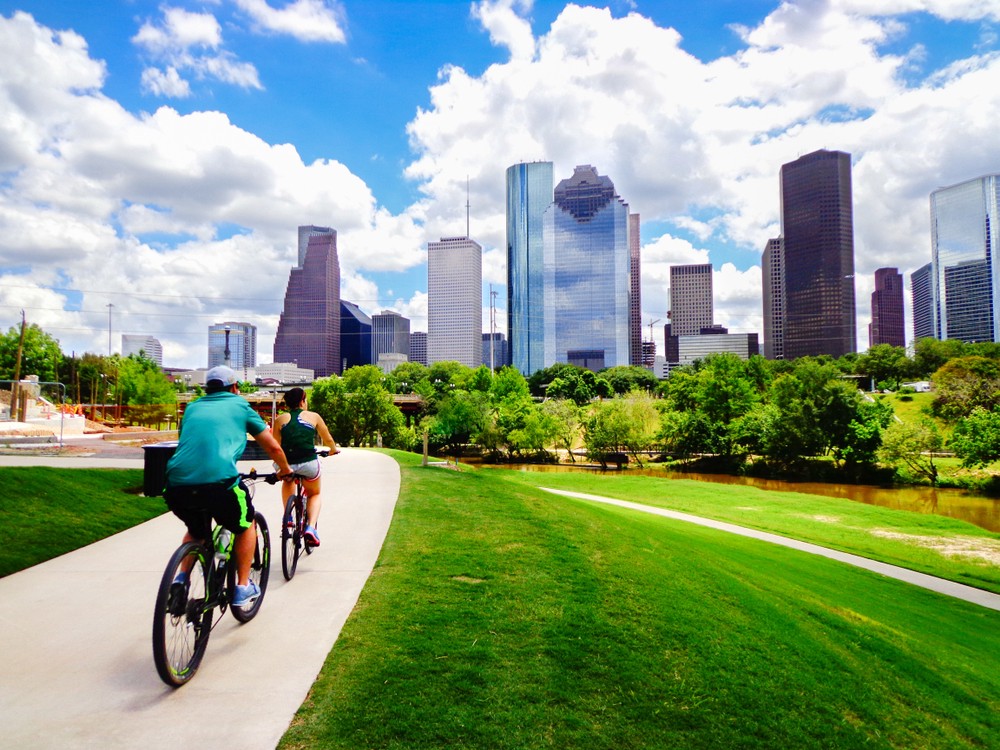How to Win the American Cities Climate Challenge

By Antha Williams and James Anderson
Last week, Bloomberg Philanthropies announced a $70-million Challenge aimed at helping cities across America grow their economies and protect human health by taking action to fight climate change. Mike Bloomberg will be emailing the mayors of the 100 largest U.S. cities about it — so keep an eye on your inbox, or tell your mayor to!
Here’s what it’s all about: When it comes to climate change, cities are both the problem and the solution. Globally, they’re the source of 70 percent of the emissions that are leading to climate change. But they’re also where creative solutions, combined with bold leadership from mayors, can make a real difference.
The new American Cities Climate Challenge aims to empower the 20 most populous, ambitious U.S. cities to dramatically accelerate their efforts to reduce local carbon pollution. The winning cities will have access to robust technical assistance worth more than $2.5 million per city, including support for a full-time city advisor and training for senior leadership. Unlike other challenges that seek to spur innovative new thinking, the goal is to scale up high-impact solutions that we already know will work — specifically, solutions in the buildings and transportation sectors, which together make up the bulk of most cities’ carbon pollution and are areas over which local governments exercise significant authority.
Mayors get this. In our 2018 survey of U.S. mayors, eight in ten said it was important for their cities to address climate change. And it’s not a partisan issue at the local level: 69 percent of Republican mayors told us it’s either very or somewhat important to address climate change. Further, two-thirds of mayors cited infrastructure as a top concern they hear about from residents. There’s a huge opportunity to make our transit systems, commercial and residential buildings, and energy grids more efficient in a way that’s good for the economy, good for the environment — and good politics.
These local actions can make an enormous difference. In Chicago, building owners participating in a new energy efficiency program, Retrofit Chicago, have seen energy performance increase 8 percent, saving more than $16 million and creating 900 new local jobs. Working collectively, the 100 largest U.S. cities have the potential to deliver 20 percent of the emissions cuts needed to meet the target set by the Paris climate agreement.
Here’s what you can do to get ready to participate in the American Cities Climate Challenge.
If you’re in one of the 100 most populous U.S. cities (here’s a list), take stock of your city’s climate strategies — what you’re already doing, what you’ve got plans for doing, and what you might dream of doing. For inspiration, check out some of these city case studies put together by the C40 Cities Climate Leadership Group, or these solutions assembled by Sustainia. The application for cities will go live on June 19, and completed applications will be due on July 18. Answers to other frequently asked questions about the climate challenge are right here. Winners will be announced this fall.
For Bloomberg Philanthropies, this challenge not only represents an exciting new way for us to engage America’s most ambitious city leaders, it’s also a new way for us to work — the first ever joint initiative between our Environment and Government Innovation teams.
The Environment team brings deep experience promoting climate action around the globe via partners such as C40, City Energy Project, and many others. And Government Innovation has supported hundreds of mayors and cities to get big things done by leveraging innovation, data, collaboration, and inspired leadership. We’re eager to join forces to help leading cities go the distance — and help U.S. cities lead this charge.